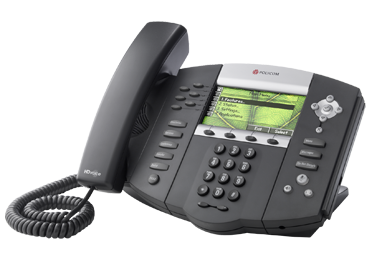How Do SIP Phones Work?
SIP is an acronym for Session Initiation Protocol. It is a standard very suitable for handling calls over some specific networks, such as the internet. Many companies have adapted to this standard and nowadays SIP is settling world-wide. But what is SIP exactly? It is not a product in particular. It’s a standard, a protocol you might say. By using a compatible device such as SIP phones, you will have access to a wide internet telephony network, which is often dubbed as “SIP telephony”.
What Does SIP Technology Offer?
What Does SIP Technology Offer?
SIP has been designed to allow users to contact others via Internet by using a structure that is similar to that of wireless and landline telephone calls. But in addition to this, SIP technology allows you to do so much more such as high-quality videoconferencing. Currently, SIP allows for conventional telephone calls, calling individuals and businesses from web links, multimedia conferencing, and communication with other users of SIP technology via instant messaging.
How Do SIP Phones Work?
How Do SIP Phones Work?
SIP phones are available in the form of headsets, desk phones, and portable phones that use SIP technology in order to place phone calls through the Internet. Usually SIP and VoIP are integrated into one software that allows users to make and receive telephone calls via wireless networks to wired phones, cellular devices, as well as other computers.
By purchasing a SIP phone, you will be able to make and receive VoIP calls via corded or cordless phone. The only key difference is the method by which the connection is made. Instead of communicating via physical/traditional lines and exchanging analogue signals, SIP phones let you talk over the internet by exchanging digital signals. These phones usually connect to a wireless router or modem and use its connection to operate.
How Can SIP Enhance Communications?
How Can SIP Enhance Communications?
SIP telephone systems offer much more than traditional telephone systems. As you already know, internet and other connections such as Leased Lines and MPLS are faster connectivity solutions that transfer much more signals as compared to slower, restrictive telephone boxes.
SIP Trunking is another key advantage of SIP technology. It is the process in which a traditional system is connected to the internet. It allows businesses and organizations to replace traditional fixed PSTN lines completely with a SIP phone system. By doing this, a business benefits from increased reliability and greater cost savings.
Conclusion
Conclusion
It is no surprise that more and more businesses nowadays are benefiting from SIP standard and SIP phones. SIP is completely future proof, as you can add additional features as well as scale up and down whenever you need to with little cost or disruption to your business. Many businesses that have implemented SIP claim to have found cost reductions of up to 25% or higher. SIP partnered with a VoIP solution enables enhanced, futuristic communication networks; bringing customers, businesses, suppliers, and partners together like never before. This enhanced communication solution is surely to get snapped up by even more companies in coming years.

